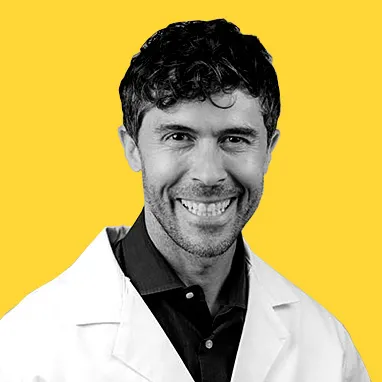If you have atrial fibrillation (AFib), you'll need help getting and keeping your heart in a normal rhythm. Different medical specialists will make up your AFib team. All of them will have the same goal, keeping your heart healthy to avoid clots and stroke.
Members of your team may include any of the following professionals.
Cardiologist
This doctor treats heart diseases. They'll diagnose your AFib. They'll also help you manage it by prescribing medicine or recommending procedures to help correct your heart rhythm.
Electrophysiologist
AFib is caused by faulty electrical signals that make your heart beat out of rhythm. An electrophysiologist is a type of cardiologist who specializes in diagnosing and treating problems with your heart's electrical activity.
They'll give you tests to find the irregular electrical activity in your heart. They may try different things to get your heart back in its normal rhythm. They could:
- Put a pacemaker in your chest to get your heart to beat at a normal rate. Another device, called an implantable cardioverter defibrillator, can act as both a pacemaker and a monitor. It will deliver shocks if the heart is beating with a dangerous rhythm.
- Give you a low-voltage electrical shock through paddles or patches on your chest to get the right rhythm back.
- Scar some tissue in tiny areas of your heart that send out abnormal electrical signals. The doctor will insert a thin tube into the blood vessels that discharges laser or other energy to destroy the problem area. This is called an ablation.
- Seal off a small pouch (sac) in the top left chamber of the heart to prevent blood clots. When the heart sends out fast and chaotic electrical signals, blood can collect in the sac. There it forms clots. If the clots get pumped out of the heart, they can cause strokes. The FDA approved this surgery, called left atrial appendage closure, in 2015.
Cardiac (Heart) Surgeon
If medicines and other treatments don't fix your heart rhythm, you might need open-heart surgery. With this procedure, the surgeon makes small cuts or burns in the atria. That's the top chambers of your heart. This is called maze surgery. You might also have surgery to fix a damaged heart valve if that's what caused you to develop AFib.
Primary Care Doctor
Your primary care doctor watches over your overall health. They can coordinate care with your cardiologist and other specialists. They also can help you manage other conditions that you may have along with AFib and make sure the treatments are OK together. If you are put on a blood thinner, the primary care doctor may monitor the levels in your blood.
Nurse Practitioners and Physician Assistants
Nurse practitioners and physician assistants have specialized medical training. They help diagnose and treat your AFib by:
- Asking questions about your symptoms and medical history
- Recommending tests and treatments for AFib
- Prescribing medicines
- Referring you to specialists
Emergency Room Team
AFib itself isn't usually an emergency. But some people are diagnosed with it after going to an emergency room with heart palpitations or chest pain. And you might need emergency treatment if you have serious symptoms during an AFib episode, or an episode that lasts more than a day.
ER doctors may give you medications to control your heart's rate or restore its rhythm. Sometimes they use a machine called a cardioverter, which sends an electric current to your heart to return it to a normal rhythm.
Physical Therapist
You may need physical therapy to help strengthen your heart muscle. This type of medical professional can teach you exercises to help you lose weight, get stronger, lower your blood pressure, and control your other heart risks.
Occupational Therapist
AFib can make you too tired or weak for everyday tasks. An occupational therapist will teach you different ways to handle everything from preparing meals to going to the bathroom to managing your finances. The therapist can also recommend changes to your home and office to make your everyday life easier.
Sleep Specialist
About half of all people with AFib also have sleep apnea. This condition blocks your airways during sleep. Then your brain wakes you up to restart your breathing. A sleep specialist can determine if you have apnea and prescribe masks or other devices to keep your airways open while you sleep.
Dietitian
Your doctor might recommend some heart-healthy changes to your diet. For example, they may recommend you eat more fruits and vegetables and cut down on unhealthy fats and sweets. They can help you plan a diet you can stick with. The diet should also address other health risks you have, such as diabetes or high cholesterol.
Mental Health Provider
Having a serious health condition, especially one that increases your risk for stroke, can be scary and stressful. Individual or group counseling from a psychologist or counselor can help you manage these emotions. Support groups often help, too.
Social Worker or Case Manager
These professionals can help you deal with some of the financial and legal aspects of your treatment, including:
- Legal issues that arise from your treatment
- Insurance coverage for your treatment costs
- Resources and care you need to stay healthy
- A discharge plan after your treatment ends
- Long-term care and other services you might need after you're discharged
Pharmacist
These experts on medications can offer detailed advice about your prescriptions, including:
- What the medicine does
- How and when to take your medication
- How you should store it
- Side effects to watch for
- How your medicine might interact with your other medication
- Insurance coverage for the prescription
